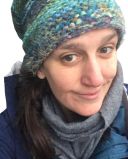Autism
Disabled by Society
Autism is about neurological divergence but social expectations are disabling.
Posted August 30, 2021 Reviewed by Tyler Woods
Key points
- Expectations are usually measured by neurotypical standards.
- Autistic people are vulnerable to being bullied and abused.
- Developmental issues can be overlooked when people are capable intellectually.
- Accommodations allow autistic people to manage their disability and get the necessary help.
There is so much we don’t know about the brain, about neurology, and about diversity and disabilities. Many people on the autism spectrum don’t identify as being disabled and I respect that, but I personally identify as having a disability. I believe being autistic impacts my ability to do many tasks which many other people find easy. It also affects my ability to understand the intentions of some people and it means I can be targeted by bullies. I also am more susceptible to poor mental health if accommodations are not made. I am prone to anxiety and experience and process trauma differently. All of this impacts my ability to work and live in this world, with the right help I can thrive, but it is clear that without the right support I will not be able to succeed.

Cynthia Kim articulated this well in her book, Nerdy, Shy and Socially Inappropriate when she wrote, “For kids who are developmentally disabled but intellectually gifted, expecting them to get by on intelligence alone is the equivalent of throwing them in the deep end of the pool without teaching them to swim first. It’s leaving them to drown—emotionally and mentally—all the while telling them how smart they are.” I believe that my intellect and my ability to communicate articulately and eloquently has disadvantaged me in many situations and is why I have received so little support or help from health and medical professionals in terms of my neurological divergence. I pay privately for all my support and treatment regarding my autism. I have never received any support from doctors or health care workers.
The way my brain works is perplexing to many people and I am gradually unpacking and learning about the intricacies and complexities associated with my neurology. For example, when my brain engages in a task or in an area of interest, it can be incredible, formidable even. But when my brain is faced with certain tasks, it is remarkable how incapable I become. This is where having an invisible disability becomes problematic and difficult for people to understand, because I don’t look or behave differently from many people in most situations.
The main issue I have faced with my disability is a lack of empathy, understanding, and compassion, and, painfully, this has sometimes come from people I loved. In the last few years, I reported being bullied and harassed and I put in a complaint when it wasn’t dealt with fairly. The feedback was that “I didn’t present like a victim.” I think about this remark often and it scares me because it is discriminatory and dangerous. It is absurd that people believe victims need to look and behave a certain way when being bullied or abused, but that is the way the world is today, and it is dominated by people who are neurotypical. Autistic people are judged via neurotypical standards. These are standards we cannot meet.
Being on the spectrum means that I experience the world differently and it means that my lived experiences will be different from those of most people as a result of the heightened senses, alternative processing abilities, and communication style that come with being on the spectrum. All of these divergences make me vulnerable to being misunderstood, misrepresented, bullied, and not believed. It can be very hard to find people who are accepting, respecting, and tolerant. My disability requires tolerance, kindness, and patience. The people who love and care about me make me feel easy to love and try and understand me, those who are intolerant can not deal with me and often treat me badly.
It has taken me years to forgive myself, accept myself, like myself, to look after myself and to eventually honour who I am because of my autism. I cannot change my brain, but I can manage how I look after myself. I can inform myself and educate myself and most importantly protect myself from harmful situations and people.
When I think about all those whom I have met and who I know who are autistic, I see them as teachers. I think they have a lot to teach the world about acceptance, love, kindness, patience, and diversity. I see the autistic community pushing boundaries, creating change, getting involved in narratives that traverse and transcend old ideals and old ways of doing things. I see them in the environmental movement, in the LGBTQ+ movement, I see them breaking new ground in the arts, in the sciences, and in the digital world. It is exciting. I also see the pain, see the chronic illnesses, see the abuse and see the shocking rates of poor mental health, the prejudice, the stigma, and the devastating suicide rates within the community.
I don’t know how to play the social games, tell the lies (apparently, this is polite), do the small talk, understand the sarcasm, pick up on some of the subtle (I'm definitely not good with subtle) conversational cues, and it seems with age, I’m getting even worse. I am disabled by societal expectations and that is why I refer to myself as having a disability, because of the consequences that often accompany not having this implicit knowledge that many other people develop.
When I received my diagnosis, the first thing the psychologist said to me after the assessment was “now the bullying is going to stop.” She was right. The harassment has stopped, but the stigma started (this is a topic for another blog). I am disabled by society and, hopefully, someday, autism will be understood better and those on the spectrum will be accepted fully and embraced for their divergences. Until then I will use this identity and accept my disability to try and get the help I need to make the most out of my life.
References
Kim, C. (2014). Nerdy, shy, and socially inappropriate: A user guide to an Asperger life. Jessica Kingsley Publishers.


